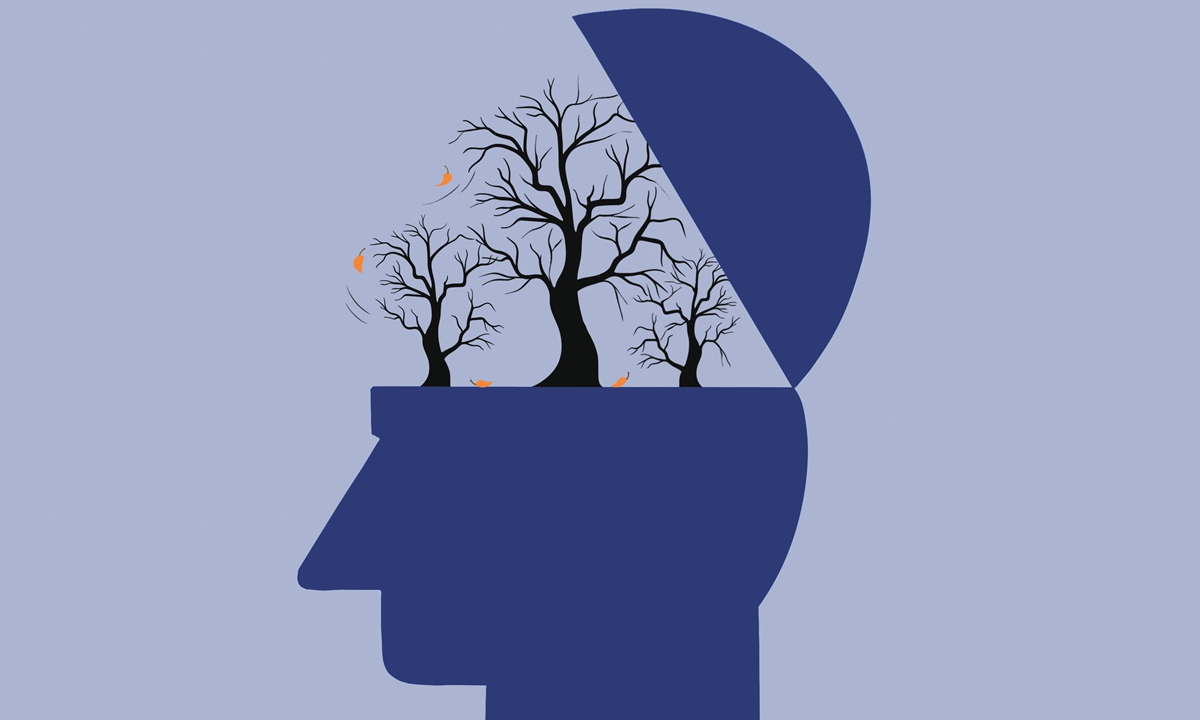Western intellectuals now have weak minds to grasp China's might

Westerners have no new words or concepts to depict China. Illustration: Chen Xia/GT
Dictatorship, autocracy, authoritarianism, totalitarianism, communism… these concepts are repeatedly appearing in Western media and experts' articles about China.
There are no new words or concepts to depict China. This phenomenon profoundly shows that Western intellectual circles are now devoid of concepts to understand China. The lack of concepts means that ideas are exhausted.
What does the "idea" refer to? It means a new thought to understand national development in the new era of globalization, world's development and the rise of great powers. We are unable to find such an analytical framework from the existing Western theoretical system.
The Western intellectual circles have their heads spinning when facing the rise of China, an Eastern great country that is totally different from its Western counterparts. They only turn to some old concepts in the existing theories. They even absurdly apply them to analyze China. It's like they are using a wrong basic equation to calculate a difficult problem. How can they find the correct answer in this case?
It's better to say China's rise has posed a challenge to the West's basic framework to understand and analyze state relations instead of asserting that China's rise has challenged the US hegemonic status. That is because under such a framework, China is destined to be at the opposite side of the US. When the words I mentioned at the beginning of this article keep appearing, relations between China and the West are being set into cement.
Although it is ridiculously simple, absurd, and even outrageous when the West uses this set of outdated concepts to categorize China, it forms the basis of public opinion for the Sinophobia that is now emerging in the West. It is this kind of cognition that shapes Western people and Western media's views on China, and also influences the policies of the US and Western countries toward China.
The deprivation of theory also makes many people fear an outbreak of a new cold war, the war between China and the US. Why? Because in the existing theory and experience, there is no such a path to common development and peaceful coexistence for the two major countries with different civilizations.
In some cases, it is not that China's relations with the US and the West are getting worse. Rather, this analytical framework of thinking about China is creating a false sense of deterioration. Imagine some Western scholars categorizing China as the former Soviet Union, or even as Germany before World War II. What impact will such categorization have on public opinion?
In fact, China is China. It is an Asian civilization with thousands of years of political evolution. The ruling Communist Party of China has gone through a century of obstacles. All of which are difficult to be completely interpreted by existing Western theories.
The rise of China and the emergence of the Communist Party of China are something new the West has never encountered before in its expansion around the globe. In other words, this is a challenge from another civilization to the Western civilization in spheres such as economics, politics, and diplomacy. At the same time, this has created an unprecedented impact on the theorists and intellectual community.
What is worrying is the Western scholars are not brave enough or capable of challenging the system in the West and building a new model of analysis or theoretical framework. And deep down, some of them simply don't want to do so because they find the West has already accumulated enough experience and created a rather complete system of knowledge in terms of social development and political science. Understanding a new China may turn the Western theoretical system upside down.
Can China and the US co-exist peacefully? Can the relationship between China and the West develop steadily and constantly? To a large extent, these questions are actually about the problem of whether there can be a more accurate theoretical system for understanding and analyzing the rise of China. And this system has to be established based on the study of Chinese historical experience, traditions, and culture. Therefore, it is a quite difficult task, and this will be a challenge to the intellectual community both in the West and China.
The author is a senior editor with People's Daily, and currently a senior fellow with the Chongyang Institute for Financial Studies at Renmin University of China. dinggang@globaltimes.com.cn. Follow him on Twitter @dinggangchina


